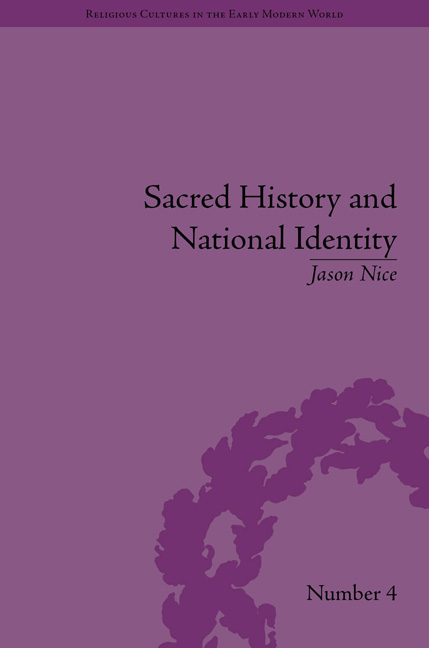1 - The Uses of Sacred History
Summary
No question has exercised the writers of histories more than the origins of peoples.
Jean Bodin, Method for the Easy Comprehension of History (1566)It would be naive to assume that sixteenth- and seventeenth-century Welsh and Breton writers composed the sacred historiography of their provinces without any knowledge of, or reference to, the burgeoning field of English and French sacred historiography. In fact, the shape of English and French sacred historiography during the period from the first publication of John Foxe's Actes and Monuments (1559) to Claude Robert's Gallia Christiana (1626) had a direct and important influence on the contemporary writings of Welsh and Breton antiquarians and ecclesiastical historians. For example, Welsh and Breton writers emulated the English and French use of sacred historiography to define national identity in terms of geographical and historical sacred space. This chapter analyses the function of English and French sacred historiography in order to grasp how Welsh and Breton writers adapted the genre to suit their own needs.
Jacob Burckhardt identified the Renaissance as a period particularly sensitive to the relevance of historical erudition for contemporary political life. According to Agnes Heller, ‘However past-directed the thinking of the Renaissance Man may have been in some respects, in practice he lived entirely in and for the present. The past was their ideal, but keeping pace with the present was the true - and dynamic - motive of action’. The subject for Burckhardt, Heller and others is, of course, renaissance humanism. In the following chapters, I stray from the main current of research in this period by focusing upon the neglected offspring of humanism: early modern antiquarianism and ecclesiastical history. These disciplines are not the same, but their practitioners shared many preoccupations. Several recent works have inadvertently compared ecclesiastical history and antiquarianism, but far fewer have openly considered them together. Anthony Grafton has attempted the only blatant comparison in a chapter on ‘The Ant-like Industry of Ecclesiastical Historians and Antiquarians’. However, Grafton considers them separately except for one important observation whereby he explains, ‘The tradition [of both antiquarianism and ecclesiastical history] took on its first clear shape in the Hellenistic world … [when] it became a matter of urgency to show that one came from an old state, which possessed a venerable religion, as well as a long standing political, social, and scholarly tradition’.
- Type
- Chapter
- Information
- Sacred History and National IdentityComparisons Between Early Modern Wales and Brittany, pp. 27 - 44Publisher: Pickering & ChattoFirst published in: 2014



